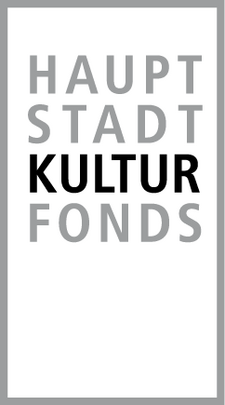Whether the visual arts, in theatre or in popular culture: nearly every area of cultural production is currently experiencing a boom in projects that sense a certain insufficiency in sticking to the frames of reference created by aesthetic articulations and actions. In view of the multifarious catastrophes in financial and job markets, in technology and ecology, there has been a loud cry for an art that would not only make it possible to describe these developments, but also would intervene as an agent of social change in a “reality” perceived as in crisis.
Current editions of cultural events such as the “Berlin Biennale”, the “Berlinale” or “documenta” are symptomatic of this longing for the real, as is the sustained interest on the part of theatre in documentary techniques, in “re-enactments” of significant historical events, and investigations of urban space, but also in the return of the protest song. It seems as if artists, curators, and cultural managers are downright obsessed with finding the right formula to diagnose our times and to deal with the crisis, and thus to represent the truly political.
HAU Hebbel am Ufer would like to look into the claims that the spheres of art and of politics make on one another, and to work out perspectives on whether and how we can get beyond the traditional antagonism between autonomy and engagement. The series “Phantasm and Politics”, conceived by Helmut Draxler and Christoph Gurk, does not seek to discredit the desire for the real as such, but rather is interested in pushing the question of what needs get articulated in this longing, and not least also what institutional conditions and interests and at play in each case, when art addresses the sphere of politics.
In the cultural industry today, the political often serves as the ultimate promise of meaning, which not only seeks to abrogate the deep ambivalences of artistic productivity, but fundamentally promises to elude their own conditions and privileges. Anyone who does away with getting entangled in power and capital – which should indeed be named, analysed, resisted as cognitive dissonance, and made productive for cultural practice – can all too easily set in gear a self-communication now purified from doubt and contradictions.
In contrast, the term “phantasm”, as Jacques Lacan coined it, coming from Sigmund Freud’s concept of fantasy, seems extremely suitable to describe exactly this ambiguity of forms in cultural politics. In everyday usage, it stands for a misguided inner idea, a chimera or delusion based on misrecognizing reality.
But phantasm is not the opposite of the real, but the thing that brings every idea of reality forth in the first place, as a suppressed wish for the absolute and for control. At the same time, phantasm serves to defend against often traumatic contents, which are reinterpreted in order to get away from any conflict with the concrete and actual conditions of denial.
For this reason, the confrontation of phantasms with their traumatic substratus is not only of central significance for psychoanalytic treatment, but also for any politicization of psychoanalysis. Precisely because a constructive and simultaneously restrictive moment remains recognizable in phantasm, the term seems particularly suitable to address the mutual effects of culture and politics.
Taking this as a starting point allows us to pose fundamental questions about fantasy in the political and the political in fantasy, and to pursue the inner and constructive connection between “fabricated fictions” and the reality that is partially determined by them. It is about nothing less than the thoroughly uncanny power of fantasy.
In winter and spring of 2013 there were three opening events, at which the curators publicly presented the conception for the project. In dialogue with artists and theorists such as andcompany&Co, Hans Werner Krösinger, Hans-Ties Lehmann, Geert Lovink, Marion von Osten, The Otolith Group and Juliane Rebentisch, the central questions were discussed in relation to concrete artistic works.
There are conference and discussion evenings planned on the theory of phantasm, its relevance for post-colonial discourse, on art in public space, on the paradigm of institutional critique, on the question of the political in theatre, and on the possibilities of a critical practice in the medium of pop culture.
Selected contributions to these events will regularly be published in the media centre of HAU Hebbel am Ufer.
2013-2015
Phantasm and Politics
A series of events on real longings and the desire for relevance in theatre, art and music
Dates
- Past dates
With support of the Capital Cultural Fund and House on Fire.



